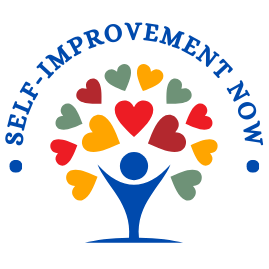How to Cultivate Positive Thoughts Every Day [Expert Tips]
Ever found yourself stuck in a cycle of negative thoughts, feeling like your every effort spirals into frustration? You’re definitely not alone. Negative thoughts can be incredibly draining and can impact every aspect of your life, from your mental health to your overall well-being. But there’s good news: you can cultivate positive thoughts every day. In this post, we’ll offer practical strategies to help you shift your mindset and embrace positivity, even on your toughest days.
Positive thinking isn’t just about putting on a happy face; it’s about focusing your mind on the good, reducing stress, and fostering a healthier mental state. We’ll explore simple yet effective tips that can help you start each day with a brighter outlook and keep negative thoughts at bay. Ready to get started on a more positive path? Let’s dive in.
Understanding Positive Thinking
Positive thinking is more than just a fleeting moment of optimism. It’s a mental attitude that focuses on the bright side of life and expects positive outcomes. But why should you care about thinking positively?
 Photo by Vlada Karpovich
Photo by Vlada Karpovich
The Science Behind Positive Thinking
Let’s dive into what science says about the benefits of positive thinking. Research has shown that maintaining a positive outlook can greatly impact your brain function, reduce stress, and improve your physical health. Here are some key points:
- Improved Brain Function: Studies reveal that thinking positively can activate your brain’s reward system, making you feel more motivated and focused. For example, according to Greatness, it helps overcome negative influences in daily life.
- Stress Reduction: Positive thinking lowers levels of stress hormones like cortisol. According to an article from Johns Hopkins Medicine, a positive attitude improves outcomes and life satisfaction across various scenarios.
- Enhanced Physical Health: Maintaining positivity is linked to better heart health, lower blood pressure, and stronger immune response. As CNN reports, positive emotions encourage optimal success, making a strong case for letting go of negativity.
In summary, the science behind positive thinking brings clear, measurable benefits. It’s more than a feel-good mantra; it’s a tangible way to foster a healthier, more fulfilling life.
Daily Habits to Foster Positive Thoughts
To cultivate a positive mindset, you need to engage in daily habits that nurture optimistic thinking. Here are some practical routines to help you foster positivity every day.
Morning Affirmations
Starting your day with positive affirmations can set the tone for a constructive day ahead. These are simple, powerful statements you say to yourself to affirm positivity. Think of them as mental vitamins. Just as vitamins nourish your body, affirmations nurture your mind.
Studies show that positive affirmations help you overcome self-doubt and reduce stress. By starting your morning with phrases like “I am capable,” or “Today, I will embrace opportunities,” you can build a resilient, optimistic mindset.
Gratitude Journaling
Focusing on what you appreciate can shift your mood and help you see the positive side of life. Gratitude journaling involves writing down the things you are thankful for each day. This practice encourages you to pay attention to life’s blessings, big or small.
Engaging in gratitude journaling can lead to better sleep, reduced anxiety, and increased optimism. It shifts your focus from what you lack to what you have, promoting a happier, more fulfilling life. Try jotting down three to five things you’re grateful for each day to cultivate a positive mindset.
Mindful Meditation
Mindfulness meditation helps to clear negative thoughts and promotes a calm, positive mental state. By focusing on the present moment, you can reduce anxiety and stress, making it easier to maintain a positive outlook.
According to recent studies, mindfulness meditation can improve sleep quality, reduce chronic pain, and enhance emotional well-being. Spend just 10 minutes a day sitting quietly, focusing on your breath to experience the benefits.
Surrounding Yourself with Positivity
The people you interact with daily can significantly influence your thoughts and attitudes. Surrounding yourself with positive people can uplift your mood and inspire you to stay optimistic.
To build a supportive social circle:
- Connect with Uplifting Individuals: Find friends and mentors who encourage and support your goals.
- Limit Negative Influences: It’s okay to distance yourself from toxic relationships.
- Join Positive Communities: Engage in groups that foster optimism and growth.
Surrounding yourself with positive people can help you persevere through tough times and stay enthusiastic about your personal growth.
These daily habits can serve as powerful tools to nurture and maintain a positive mindset. With consistent practice, you’ll find it easier to foster positive thoughts and live a more fulfilling life.
Overcoming Negative Thinking Patterns
It’s not always easy to keep our thoughts positive, especially when negativity creeps in. But understanding how to overcome negative thinking patterns is essential for a healthier mind. Below are some ways you can tackle these thoughts head-on.
Cognitive Behavioral Techniques

Cognitive Behavioral Techniques (CBT) can help you reframe your thoughts and see things from a different perspective. CBT is all about changing how you think to change how you feel.
One effective CBT technique is cognitive restructuring. This involves identifying negative thought patterns and replacing them with more positive ones. For example, if you often think, “I can’t do this,” try replacing it with, “I’ll give this a try.” It’s like putting on a new pair of glasses and seeing the world in a new light.
There are numerous CBT techniques and exercises you can try:
- Journaling and Thought Records: Write down your negative thoughts and then challenge them. This helps in visualizing how irrational they might be.
- Activity Scheduling: Plan positive activities throughout your week. This keeps your mind engaged in uplifting tasks, reducing room for negativity.
- Guided Discovery: Engage in questioning and exploring new ways of thinking about situations.
These techniques can be incredibly effective if used consistently. Remember, it’s like training a muscle—the more you practice, the stronger you’ll get.
Challenge Your Inner Critic
We all have that inner voice that tends to be more critical than supportive. Challenging your inner critic is crucial for developing a positive mindset.
Recognize when your inner critic is talking. It might sound like, “You’re not good enough,” or “You’ll never succeed.” Once you recognize it, challenge it. Ask yourself, “Is this thought true?” More often than not, you’ll find it’s not.
A helpful approach is to practice self-kindness. When you notice these self-critical thoughts, treat yourself with the same compassion you’d offer a friend. Say things like, “It’s okay to make mistakes,” or “I’m doing my best.”
Here are some strategies to tackle your inner critic:
- Name Your Inner Critic: Giving it a name can help you see it as separate from yourself.
- Reframe Negative Thoughts: Turn “I’m a failure” into “I’m learning and growing.”
- Seek Evidence: Look for evidence that contradicts your negative thoughts.
- Affirmations: Use positive statements like “I am capable” to drown out the negativity.
Challenging your inner critic takes time, but it’s worth the effort. Over time, you’ll find those negative voices becoming quieter and your self-confidence growing stronger.
Photo Caption: Delight and positivity can be nourished by actively challenging negative thoughts and embracing positive affirmations.
Creating a Positive Environment
Creating a positive environment around you is a vital step towards cultivating positive thoughts. Your surroundings can greatly influence your state of mind and your ability to stay uplifted and motivated throughout the day. Here’s how you can shape your environment to help nurture positivity.
Decluttering Your Space
A tidy space can lead to a clear mind and positive thoughts. Think about how you feel when your room is messy versus when it’s neat and tidy. A cluttered space can make you feel overwhelmed and stressed. It sends a visual signal that things are out of order which can lead to negative emotions like sadness or frustration. On the other hand, a clean and organized space can have amazing benefits.
- Improves Mood and Reduces Stress: Cleaning up and organizing your space can instantly lift your mood. You’re not constantly tripping over items or losing things in the mess. According to Psychology Today, decluttering can boost productivity and create healthy habits.
- Enhances Focus and Productivity: Removing distractions has a direct impact on your ability to focus and be productive. When everything is in its place, you can concentrate on tasks without being sidetracked by clutter.
- Promotes Well-being: Decluttering can even improve your physical health by reducing dust, mold, and other allergens in your space, ultimately creating a healthier living environment. WebMD explains how decluttered spaces can reduce stress and promote well-being.

Photo by Kampus Production
Incorporating Positive Media
What you consume daily has a big impact on your thoughts and feelings. Surrounding yourself with positive media, like uplifting books, music, and podcasts, can significantly influence your mindset.
- Uplifting Books: Choose books that inspire and motivate you. Biographies of people who have overcome challenges, self-help books, or even novels with uplifting messages can give you a new perspective on life.
- Motivating Music: Create a playlist of songs that make you feel happy and energized. Music has a powerful effect on mood and can instantly turn a bad day around. Check out 20+ best music podcasts to break out of a listening rut and discover tunes that lift your spirits.
- Inspiring Podcasts: Listening to podcasts that share positive messages or tell inspiring stories can help you stay optimistic. Shows like New Books in Music or other lifting podcasts can provide a mental boost during your daily routine.
By mindfully shaping your environment, both physically and mentally, you can cultivate a positive mindset. The effort you put into creating a positive environment will pay off with improved mood, productivity, and overall well-being.
Stay tuned for more tips on how to cultivate positive thoughts every day!
Seeking Professional Help
When you’re trying to cultivate positive thoughts every day, seeking professional help can make a significant difference. Therapists and counselors are trained to help you navigate your feelings and thoughts efficiently. If you feel stuck in a cycle of negativity, talking to a professional might be the key to unlocking a more positive mindset. Let’s explore some therapy and counseling options that can guide you on this journey.
 Photo by Ketut Subiyanto
Photo by Ketut Subiyanto
Therapy and Counseling Options
Finding the right type of therapy can be a game-changer. Here are some effective options:
- Cognitive Behavioral Therapy (CBT): CBT helps you recognize and change negative thought patterns. This type of therapy teaches you how to cope better with stress by altering distorted thinking. It’s all about flipping the script in your head to something more positive. Want to dive deeper? BetterHelp provides great insights.
- Positive Psychology: This form of therapy focuses on enhancing positive emotions and strengths. It encourages you to look at the good things in life and fosters a sense of gratitude. It’s like focusing on the sunny days rather than the cloudy ones. PositivePsychology.com explains more about how positive psychology works.
- Acceptance and Commitment Therapy (ACT): ACT combines mindfulness strategies with behavioral changes. It helps you accept your emotions rather than fighting them and commits you to action that aligns with your values. Think of it as embracing the waves rather than trying to stop them. You can find a range of other therapies at Psychology Today.
- Positive Psychotherapy (PPT): PPT is designed to increase positive emotions, engagement, and meaning in life. It focuses on building what’s already strong and good in you rather than just treating what’s wrong. Learn more about the benefits of PPT from PositivePsychology.com.
These therapy options can help transform your thought patterns and enhance your overall well-being. If one method doesn’t resonate with you, there are many others to explore. The goal is to find what works best for you.
Conclusion
Positive thoughts can transform your daily life. By practicing gratitude, surrounding yourself with positivity, and staying mindful, you set the stage for a brighter, more fulfilling day.
Implement these strategies to start seeing the long-term benefits, including improved mental health and increased resilience.
Take charge of your mindset today.
How have you already cultivated positive thoughts? What changes have you noticed?
Thank you for reading. Feel free to share your thoughts and experiences below.




This is such a valuable resource. I’ve learned so much from this post, and I appreciate the practical advice you’ve shared.
Thanks for the great tips!